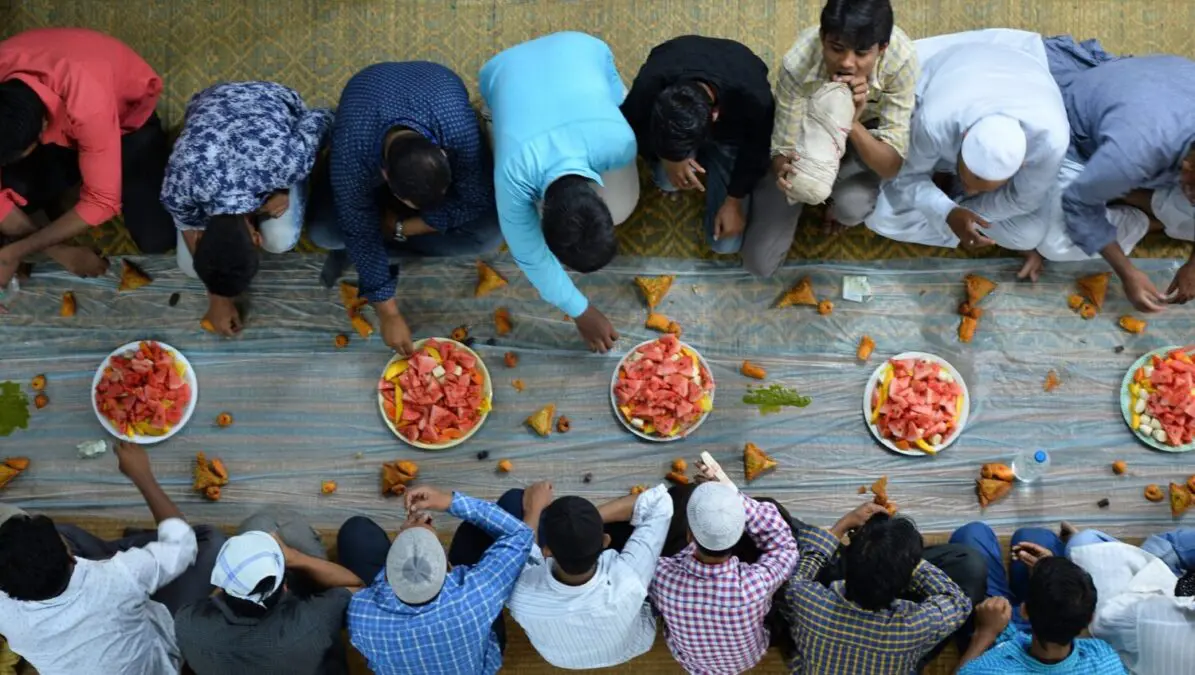Fasting is an essential part of every world religion and often goes hand in hand with characteristic ceremonies and practices. Temporary refusal of certain drinks and foods should purify the body and soul, as well as lead to a state of inner peace. The days set for fasting also provide an opportunity for prayer and meditation.
Cultures and religions have a great influence on what people in different parts of the world consume. “Religion leaves an imprint on a person’s workday, and thus on the food he eats.
Muhammad fasted before the contents of the Qur’an were revealed to him. Moses fasted before hearing the word of God. Fasting in Islam is one of the main requirements. They are expressed in complete abstinence from food, water, all kinds of drinks, smoking, bathing, inhaling incense, entertainment and more. during the light part of the day. After dark, the bans do not apply. Those who cannot observe them for some reason (war, captivity, illness), who cannot be held accountable for their actions (the mentally ill), as well as the elderly, children, pregnant women and nursing mothers, are exempted from fasting. The exemption from fasting of the various categories entails the obligation for each day during which they have not fasted – to donate an amount equal to the value of a normal meal for one person, which amount will be used to feed the needy, and those who are not financially able to pay at least for the lunch of one in need.
Fasting during the month of Ramadan (the 9th month of the lunar Muslim calendar) is obligatory for all Muslims. Ritual plays a central role in the Qur’an and, along with religious vows, daily prayer, almsgiving and worship of Mecca, is considered one of the five main pillars of Islam.
A prescription for fasting in the Qur’an during the month of Ramadan is found in the following verses from Sura 2: 183-185 and 2: 187. The Qur’an recommends fasting as an alternative punishment for certain transgressions (4:92; 5:89; 58: 4) or as rituals for worshipers (2: 196). According to the Qur’an (19:26), the Virgin Mary (Mariam) has made a vow of silence, which is also considered fasting – “And if you see anyone, say, I have made a vow of ‘shaum’ to the Merciful One, and I will not speak to no one today. ”
In this month, the angel Gabriel transmitted to the Prophet the first of the divine revelations that are the basis of the Qur’an. Strict fasting is observed throughout the month. Unlike the Christian one, it does not consist in abstaining from certain types of food, but in the complete refusal of food and water during daylight hours. All food is allowed, but only at night, “when you cannot distinguish the white thread of the sunrise from the black, and then fast until the night.” Over time, modern bans have been added, such as chewing gum.
An orthodox Muslim is forbidden to inhale fragrances, bathe, gamble, inject, take medication, brush his teeth (because of the risk of swallowing water) and smoke
It is estimated that in Ramadan, Allah increases the significance of each of them 700 times, and Satan (Satan) is chained this month. And it is much easier for Muslims to do good deeds than in the other months of the year. Therefore, they try to mention Allah more often, read the Qur’an and give alms. It is in Ramadan that many believers go on pilgrimage to Mecca.
The period is considered a holiday and therefore throughout the month with the onset of darkness begins a real feast. Every home prepares the most delicious dishes and pilaf. But by far the most spectacular celebration begins with the end of Ramadan – with sweets, merriment and songs. It is the duty of every Muslim beforehand to make a donation for the benefit of the poor so that they too may take part in the festivities.
The ninth month of the Islamic lunar calendar, Ramadan, is very important for 1.3 trillion Muslims worldwide. During the holy month, believers observe fasting during the light part of the day, and after sunset it is allowed to eat in moderation. Sunni tradition recommends fasting until sunset, while Shiites believe that one should wait for any redness to disappear from the sky before eating. The list of prohibitions does not apply to the sick, children, pregnant women, as well as the military during the campaign. Fasting is forbidden on the Feast of the Cessation of Fasting at the end of Ramadan or on the day of answering and the three days after it.
In principle, Muslims are allowed everything that does not harm the body, while what is intoxicating is forbidden. Muslims strictly observe the “haram” (prohibition) of consuming pork, as it considers it unclean. You may be asked if the meat is halal. In order for the meat to be “halal”, it is necessary for the animal to be slaughtered in a special way so that it is completely cleansed of blood.
In most Muslim countries, there is also a strict ban on alcohol. Alcohol is intoxicating, and anything that intoxicates is forbidden in Islam, because one must be sober throughout one’s life. “Caffeinated beverages, such as coffee, can also be considered” haram “(forbidden) in some countries.







